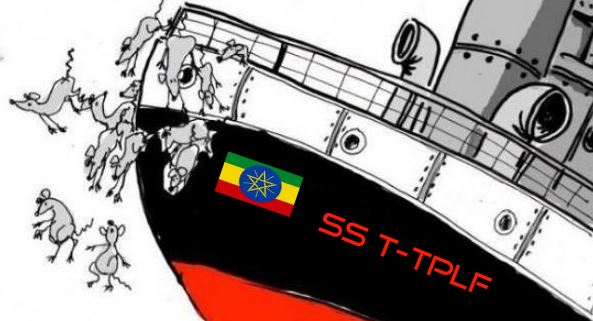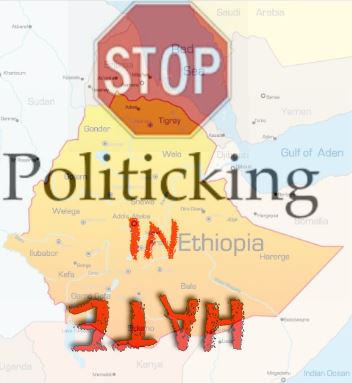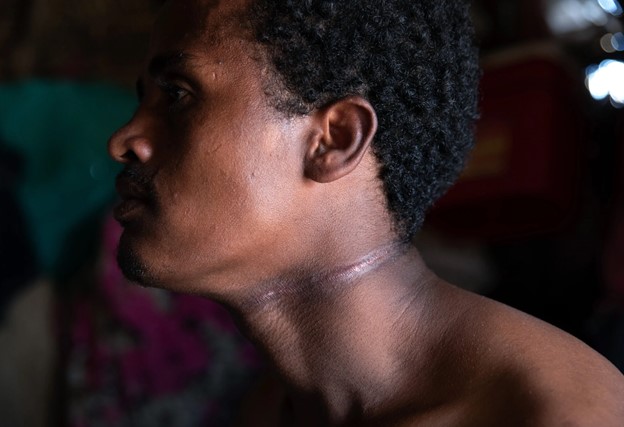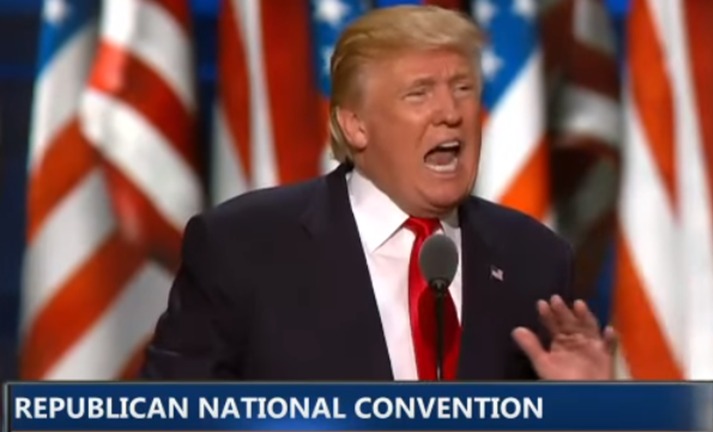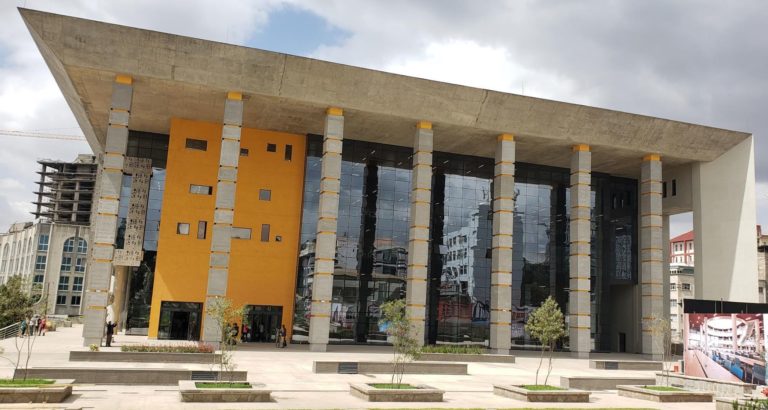Interpreting and Applying the Ethiopian Constitution During the COVID-19 Pandemic (Part III)
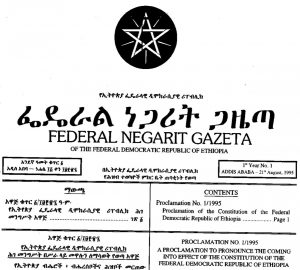 Author’s Note: On May 18, 2020, I had an opportunity to make a virtual appearance (in Amharic, begins at minute 36:17- 1:22) before the Ethiopian Constitutional Inquiry Council and share my views on issues related to the postponement of the August 2020 national and regional elections because of the Covid-19 crisis. In Part I of my commentary, I sought to amplify on my testimony before the Council by providing my readers a brief discussion and online resources on constitutionalism and Ethiopia’s constitutional history. In Part II, I discussed approaches and methods to constitutional interpretation from the viewpoint of American constitutional jurisprudence and legal scholarship. In Part III below, I offer my constitutional analysis on the postponement of the August 2020.
Author’s Note: On May 18, 2020, I had an opportunity to make a virtual appearance (in Amharic, begins at minute 36:17- 1:22) before the Ethiopian Constitutional Inquiry Council and share my views on issues related to the postponement of the August 2020 national and regional elections because of the Covid-19 crisis. In Part I of my commentary, I sought to amplify on my testimony before the Council by providing my readers a brief discussion and online resources on constitutionalism and Ethiopia’s constitutional history. In Part II, I discussed approaches and methods to constitutional interpretation from the viewpoint of American constitutional jurisprudence and legal scholarship. In Part III below, I offer my constitutional analysis on the postponement of the August 2020.
COVID-19 and postponement of the August 2020 election
COVID-19 has wreaked havoc on the global health, economic and social system. In April, the Ethiopian Parliament passed Proclamation No. 3/2020, (“State of Emergency Proclamation Enacted to Counter and Control the Spread of COVID-19 and Mitigate Its Impact”.) This emergency Proclamation is based on the emergency powers expressly listed in Articles 77 (10) and 93 (4) (a) and (b) of the Ethiopian Constitution.
The constitutional question before the HoF is whether COVID-19 is a necessary and sufficient constitutional condition to justify postponement of the August 2020 national and regional elections in light of Article 58 (3) of the Ethiopian Constitution which provides, “The House of Peoples’ Representatives shall be elected for a term of five years. Elections for a new House shall be concluded one month prior to the expiry of the House’s term.”
The current term of parliament expires by the end of September 2020, which means under Article 58 (3) and in normal circumstances, the election must take place by the end of August. The fact is such an election cannot be held because of the COVID-19 crisis.
Article 58 within itself does not expressly anticipate postponement or delay of elections or provide for extraordinary circumstances that could prevent an election as prescribed in the timetable. What constitutional mechanisms are available to address the apparent lack of express language authorizing postponement or delay of an election under Article 58?
The Ethiopian Constitution expressly delegates the resolution of all constitutional questions to the House of Federation (HoF). Article 62(1) provides, “The House [of Federation] has the power to interpret the Constitution.” This power is reaffirmed in Article 83. “All constitutional disputes shall be decided by the House of the Federation. Article 84 delegates the power to “investigate constitutional disputes to the Council of Constitutional Inquiry” and “submit its recommendations thereon to the House of the Federation.” This Council’s duty is solemnized in Proclamation 798/2013.
Whether the August 2020 election may be postponed cannot be answered by mere textual analysis of Article 58(3). It can only be answered by undertaking a broader structural constitutional analysis (see Part II of this series).
It is manifest to the reasonable mind that the underlying purpose of Article 58(3) is not merely to facilitate elections for candidates so that they can take office. The singular purpose of Article 58(3) is to ensure a free and fair election. So, the guiding question must be, “What happens if a free and fair election cannot be held under Article 58(3) because of an emergency for which the Constitution makes an expression exception under Article 93 (1)(a) (occurrence of an epidemic)?
The House of Federation should begin its constitutional analysis NOT by simply focusing on Article 58 but rather by undertaking a structural interpretation of Article 58 within the bundle of constitutional provisions dealing with elections, including Articles 38(1)(c); 38(3); 54 (1), 58(3) and 102(1) and the totality of the Constitution and the history of the electoral process since the promulgation of the Constitution in 1995.
The texts of Article 54(1), 58 (3) and 102(1) are clear on the constitutional mandate of ensuring election of members of the House of Peoples’ Representatives for a term of five years in a free and fair elections and for the National Election Board to be the sole organizer and arbiter of such an election. The texts of Article 38 (1)(c) and (3) are equally clear in underscoring the necessity of having elections that “guarantee the free expression of the will of the electors” and that such elections “be conducted in a free and democratic manner.”
The seminal question within the bundle of these provisions is why the drafters of the Constitution omitted contingency language in the event an election could not be held as mandated in Article 58(3). Were the drafters simply unaware of a possibility that could lead to a postponement of an election? Did they intentionally omit such language? Did they intend to create chaos and anarchy by leaving out a contingency clause?
A fair and reasonable reading of Article 58(3) shows that the language therein was intended to be an ironclad constitutional guarantee that elections will take place as prescribed, and not to preclude delay or postponement under extraordinary circumstances. Article 58 did not provide qualificatory language for postponement or delays because the drafters had already anticipated and provided for such extraordinary circumstances under Article 93, which specifically includes external invasion, a breakdown of law and order which endangers the constitutional order, a natural disaster, or an epidemic. For instance, there could be no election if the country is under external invasion. The outcome is the same if the country is facing a pandemic of global proportions.
Whether or not the August 2020 election should be postponed should pivot on a single question: Given the COVID-19 crisis, is it possible to have a free and fair election in August 2020? It is pointless to have an election on a particular date if it is not free and fair. The critical issue is not the simple fact of meeting a designated constitutional deadline for an election but most importantly the fact of ensuring elections that are held are free and fair. See my earlier commentary on what makes for a free and fair election.
One of the principal purposes of constitutional interpretation is to harmonize the meaning of constitutional language and to illuminate obscure implications locked in words and reconcile linguistic omissions with intended constitutional purposes to produce fair and reasonable outcomes, and in extreme cases to sever language that is manifestly repugnant to the scheme of the constitution.
There is little doubt in the reasonable mind that if free and fair elections cannot be held because of a pan/epidemic, such election must be postponed until such time as free and fair elections can be held.
It is solemn duty of the HoF to examine the constitutional scheme evident in Articles 38, 54, 58 and 102 and obtain a result that harmonizes these provisions consistent with the fundamental constitutional objective of having free and fair elections.
Article 93 and postponement of the August 2020 election
The Ethiopia Constitution has 106 articles. Except for Article 93, and 77(10), the remaining 104 articles deal with the ordinary course of constitutional governance.
Article 93 grants the Ethiopian federal government special and extraordinary powers during war, invasion, insurrection, rebellion, epidemics and other extraordinary emergencies. But Article 93 takes a life of its own only and only when the ordinary constitutional process is impaired because of extraordinary circumstances. Article 93 creates, as it were, a constitutional override when it is necessary to harness the entire energies of the nation to preserve and protect the nation.
Articles 93 and 77(10) which address extraordinary emergency situations effectively suspend the efficacy of the 105 articles. The Constitution is drafted to function in ordinary peacetime and non-normal, extraordinary and emergency situations. Alternatively stated, during normal times, the national government would function in the regular business of constitutional process and during an Article 93 emergency, it would have broad powers to enable it to function during an emergency. Such emergency powers should be interpreted broadly to provide the government with whatever power may be needed to meet the emergency that is presented.
Article 77(10) provides the “Council of Ministers has the power to declare a state of emergency”. Article 93 provides the Council of Minsters “has the power to declare a state of emergency” with the approval of the House of the People’s Representatives.
Article 93(a) further provides the Council of Ministers of the Federal Government shall have the power to decree a state of emergency in the epidemic provided it is approved by the House of Peoples’ Representatives. If such an emergency is declared, the “Council of Ministers shall have the power to suspend such political and democratic rights contained in this Constitution to the extent necessary to avert the conditions that required the declaration of a state of emergency.
Elections are fundamental “political and democratic rights” and under Article 93(a) the government has the “power to suspend” them. In effect, by postponing the August 2020 election, the government is merely “suspending” them for an initial period of 6 months subject to review at the end of the initial period.
By declaring a national emergency, the government of Ethiopia is not assuming or obtaining new powers. It is merely unlocking a dormant power, a reserved power under Article 9 to deal with a pan/epidemic.
The power of the Ethiopian federal government is not created by the emergency of an epidemic of pandemic. It is an expressly granted constitutional power to meet the emergency created by the COVID-19 pan/epidemic and successfully deal with it.
Therefore, there is little doubt the federal government of Ethiopia can postpone the August 2020 election as set forth under Article 93 (3).
Article 9 and the nature of state power
Article 9 (3) provides, “It is prohibited to assume state power in any manner other than that provided under the Constitution.” Some have argued this article effectively invalidates and delegitimizes any government that is not elected by September 30 under Article 54. Such an argument is manifestly absurd for at least three reasons. First, what is the manner of assumption of state power under Article 9(3)? Free and fair election. What is free and fair election? Under Article 93(a), it is a fundamental “political and democratic” right. Is election a right that is non-derogable (cannot be suspended) under Article 93(4)(c)? It is not because only Articles 1, 18, 25, and subArticles 1 and 2 of Article 39 are expressly protected from suspension under an emergency or other circumstances.
Second, Article 9(3) examined within the broader scheme of the Constitution is manifestly aimed at seizure of power by means other than elections. It is aimed at prohibiting seizure of power in coup d’états, insurgency, revolt, rebellion, insurrection, subversion, anarchy and so on.
Third, Article 9 (3) is found in the section of the Constitution establishing “Supremacy of the Constitution”. Other provisions of Article 9 make pronouncements on the duty of citizens, organs of state and political organizations to uphold the Constitution and incorporation of international agreements ratified by Ethiopia as part of Ethiopian law. Thus, Article 9(3) is declaratory (asserts legal facts) and confirmatory of the electoral process as the only legitimate pathway to political power.
For these reasons, the argument that Article 9(3) delegitimizes government past September 30 is nonsensical and absurd. Those who spend sleepless nights salivating about a power grab in an imaginary constitutional crisis will find nothing but disappointment.
Ethiopia as a nation with a long tradition of the rule of law
The English Magna Carta celebrated as the source of the rule of law and negation of the rule of men by divine right was written in 1215. It has been described as “the greatest constitutional document of all times – the foundation of the freedom of the individual against the arbitrary authority of the despot”.
The Fetha Nagast (Law of the Kings), compiled around 1240 AD served as Ethiopia’s constitution until a modern one was drafted to replace it in 1931. The first part of the Fetha Negast deals with ecclesiastical matters and church hierarchy. The second part covers a variety of secular matters including liberty, slavery, partnership, lease, property rights and other similar things.
Ethiopia had the Fetha Negast before the English had their “Bill of Rights” (1689), the French their “Declaration of the Rights of Man and of the Citizen” (1789) and the U.S. its Constitution of 1787.
Ethiopians have a long and storied tradition of constitutionalism and rule of law. We even swear by the “God of laws” (hig amlak).
Over the past one-half century, regimes have come and gone pledging allegiance to socialism, communism and faux federalism. The rule of law has been replaced by the rule of the gun and national pride has been painted over by national humiliation. It is time to be proud of our constitutional history and chart a new course of constitutional governance for a new generation.
I have expounded at length on my conception of the rule of law. I have also written on Ethiopian exceptionalism, the idea that Ethiopia has certain unique and positive qualities that make it different (but in no way better or superior to any others) from other nations in the world.
The House of Federation today has a unique opportunity to show and prove to the world how exceptional we are by interpreting the Constitution fairly and impartially to transition Ethiopia during the COVID-19 crises. One must resolve a constitutional question by the constitution one has, and not by a constitution one might want or wish to have.
CARPE DIEM! (Seize the day!)


